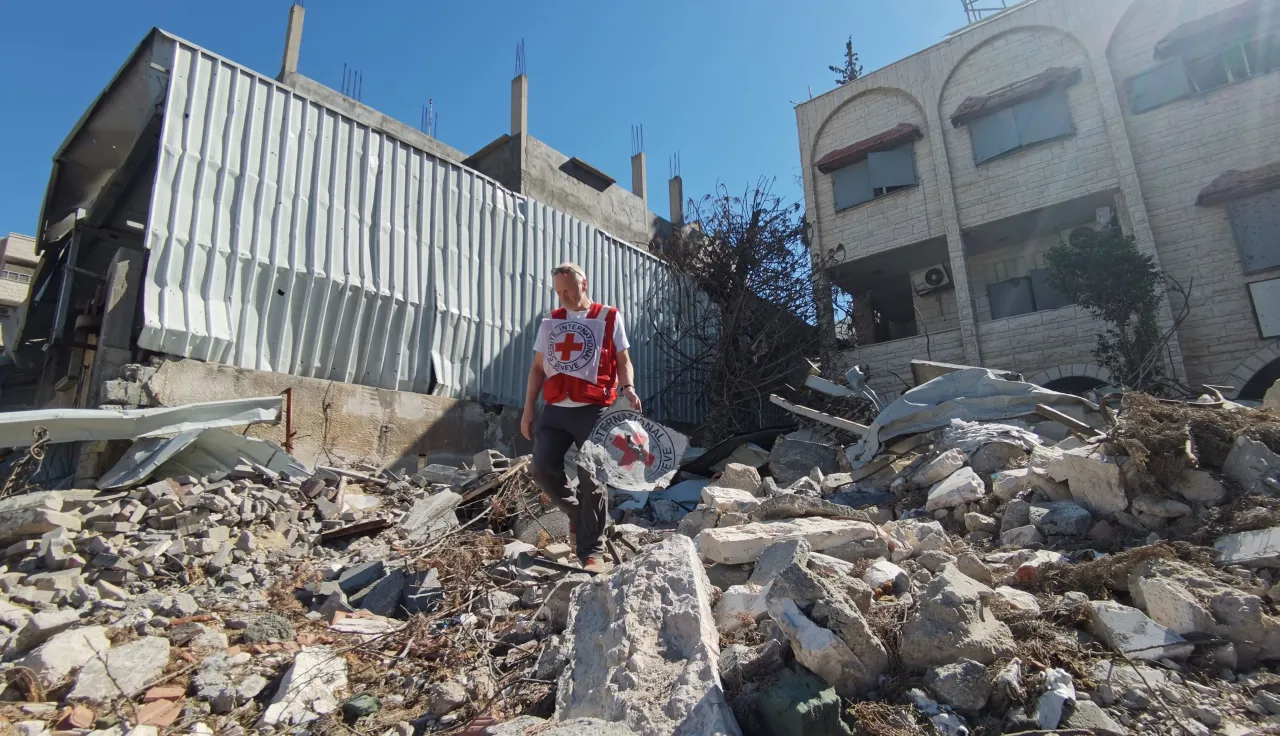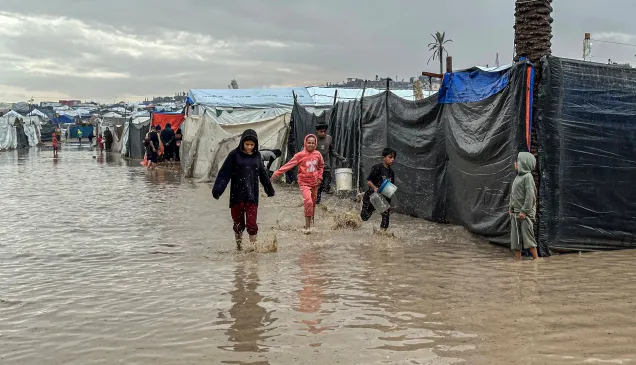Gaza’s Humanitarian Crisis: The ICRC’s efforts to provide lifesaving support amid conflict and scarcity

The reality of life for civilians in Gaza is increasingly dire. Families are suffering from severe shortages of food, safe water, medical supplies, and shelter. Continuing violence has led to widespread infrastructure damage and the reduction of economic opportunity, and severe restrictions on the introduction of basic humanitarian necessities is placing an immense strain on daily life.
Nearly the entire population of Gaza also lacks access to safe and effective health care services. In response, teams from the International Committee of the Red Cross (ICRC) have been in Gaza City whenever possible, delivering critical medical supplies to the few health facilities that remain operational in the Gaza governorate, supporting hospitals and healthcare facilities with surgical supplies, electrical repairs, and emergency medical kits. This enables medical teams to perform life-saving surgeries and treat patients with chronic conditions who might otherwise lack access to essential care.
But we’re unable to provide sustained humanitarian assistance to civilians in desperate need in Northern Gaza.
“We are seeing civilians continue to arrive in Gaza City and are hearing alarming reports from those who have managed to evacuate from the northern governorate,” says Stephanie Eller, Deputy Head of the ICRC Sub-delegation in Gaza. “There are accounts of thousands of displaced people who left Jabalia and Beit Lahia now living on the streets, desperate and with absolutely nothing left to survive, fearing for their lives, for the safety of their children, and of being separated from their family members.”
We continue to see shortages of critical medical supplies, food and essential services needed for survival. Hospitals are receiving evacuation orders and are critically under-resourced, while the influx of new patients is unrelenting – the consequences disastrous for the many civilians who remain stranded in Northern Gaza.
First responders have been taking on tremendous risks to try to reach casualties and those in need, but they must be given safe access in time for their life-saving work to be done.
In the midst of this crisis, the ICRC continues to call for the rules of international humanitarian law (IHL) to be respected. The ongoing restrictions on entry of aid, and the inability to safely and effectively distribute this aid, undermines the capacity of humanitarian organizations to respond. Every measure must be taken immediately to increase the safe and sustained introduction of humanitarian assistance, ensure safe passage for civilians seeking to evacuate, and for all parties to take constant care to protect civilians and health infrastructure – regardless of evacuation orders.
“The ICRC remains committed to supporting medical services, but the situation is critical and rapidly deteriorating,” says Eller. “We also continue to engage whenever possible in our role as a neutral intermediary, to facilitate movements of medical personnel and equipment, but more must be done to ensure safe access for humanitarian and medical actors. People need food, water, medical care, and above all, a respite from the ongoing hostilities.”
Read more about our work in Israel and the Occupied Territories.
On the ground in Gaza
Urgent help needed
The ICRC continues to do everything within our power to support people affected by the conflict, including trying all possible means to get aid, including critical health care, into Gaza, and persistently advocating on behalf of hostages being held in Gaza.



